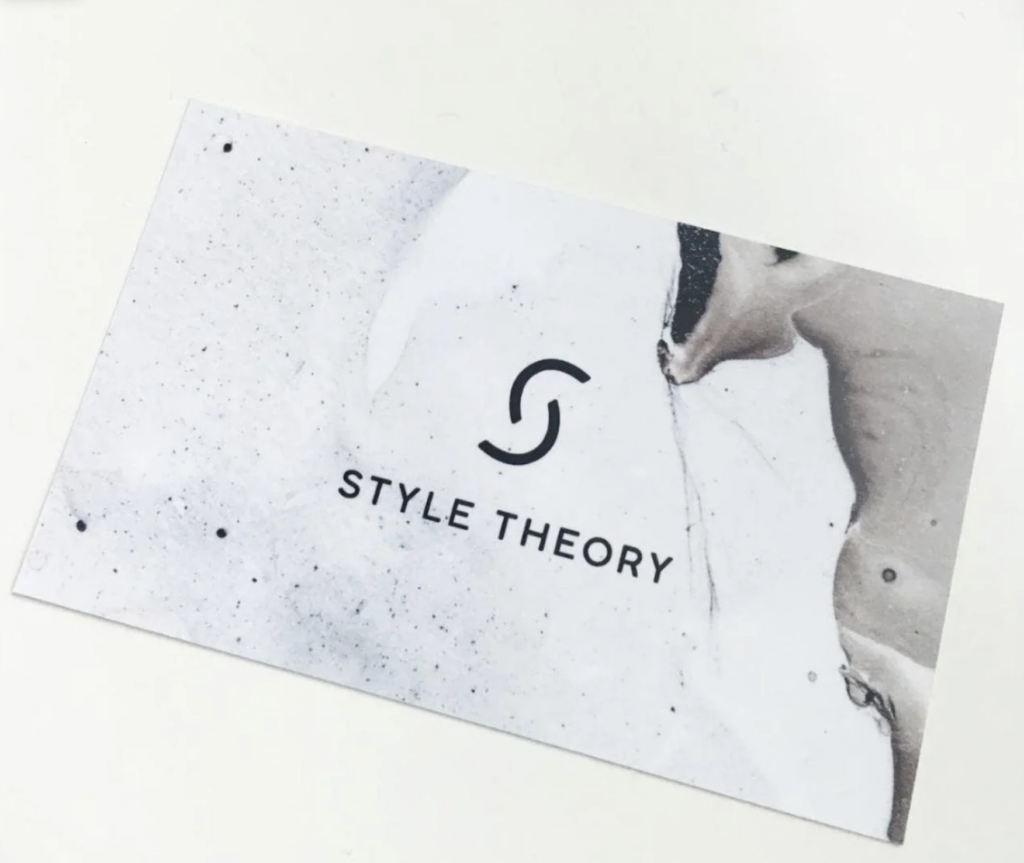Today marks the end of my chapter with Style Theory. In the blink of an eye, 3 years flew by. In 3 years, we expanded to Indonesia, launched new business lines, raised our Series B funding and more. In a nostalgic mood, I decided to take a trip down memory lane and compile some of my learnings.
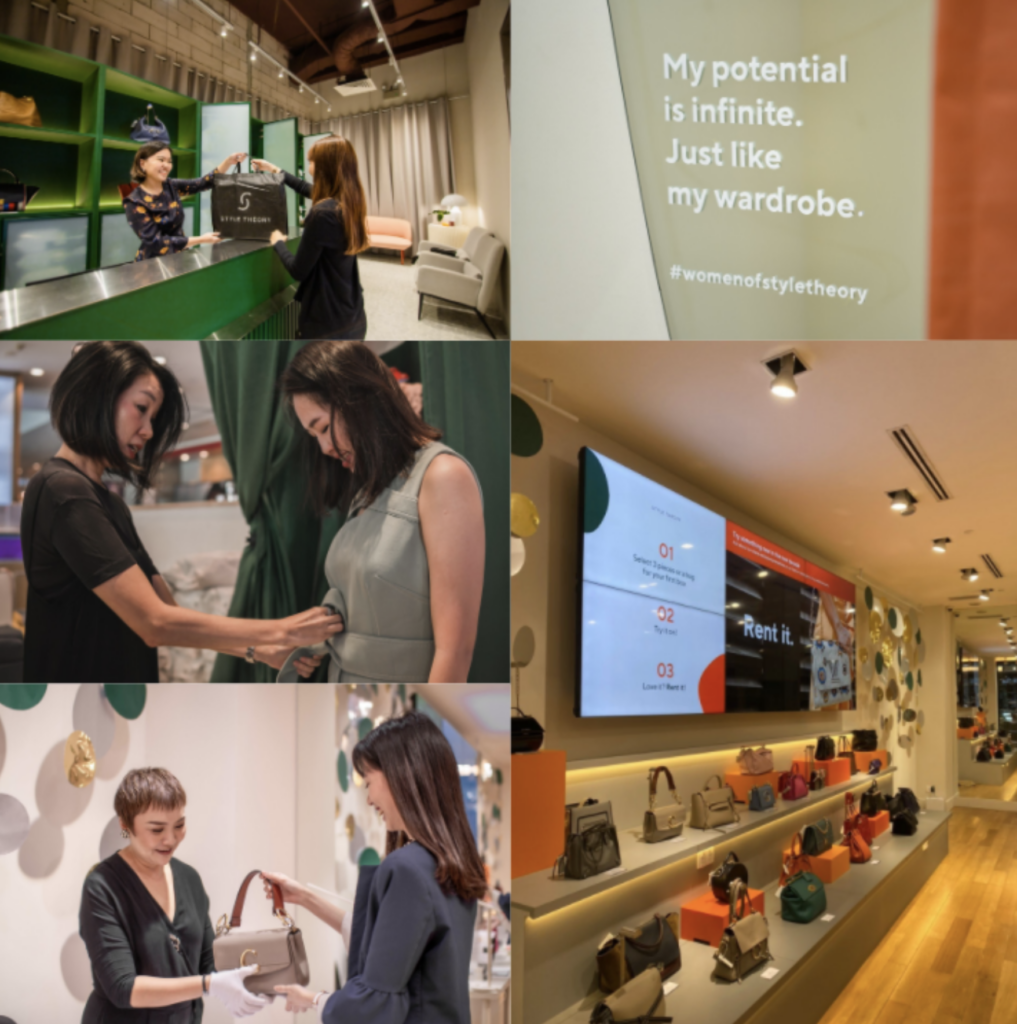

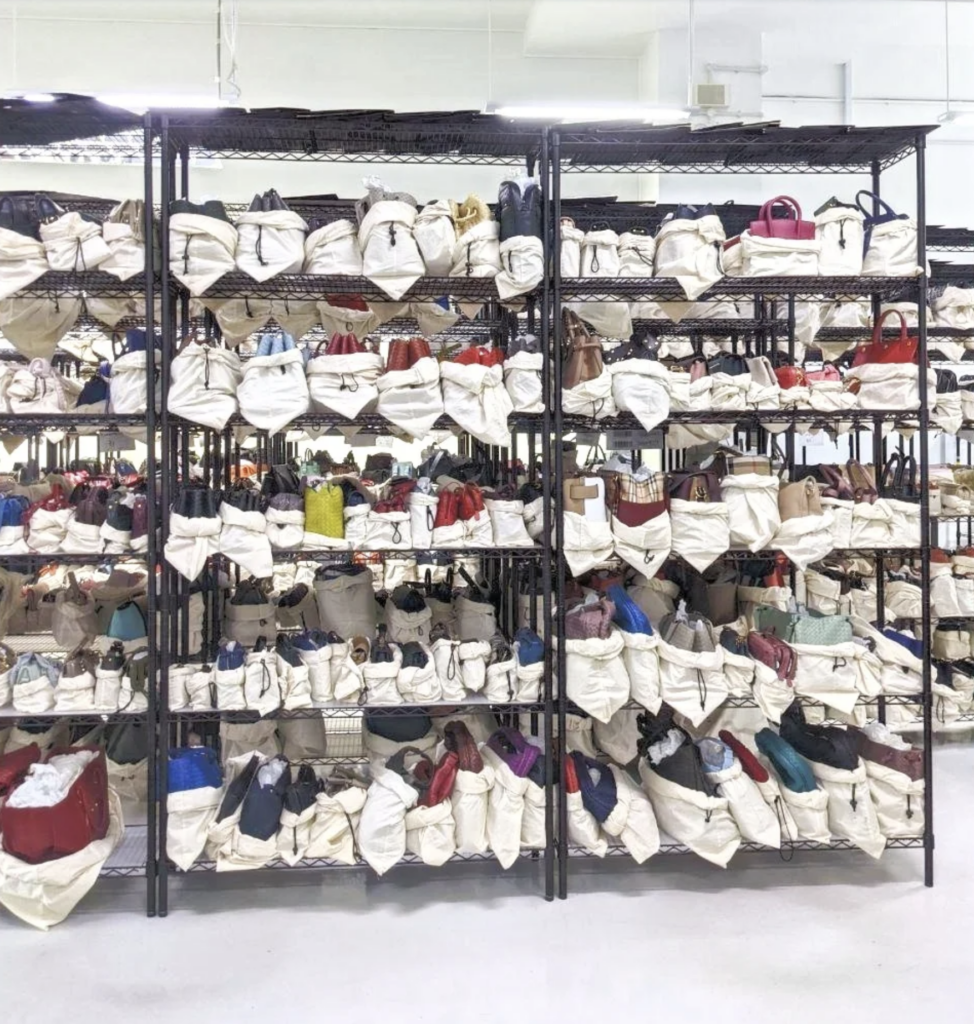
FUN FACT
When I first joined, we didn’t even have meeting rooms haha. Our office and warehouse was at the same unit. We had to chope the pantry table or find some empty space on the floor between the clothes and boxes. So proud of how our warehouse looks now 🙂
I remember how I got an interview at ST – It was a year after I joined my first job at a management consulting firm. Reflecting on my career and what I wanted to achieve and experience, I realized it was on my bucket list to explore working for an early-stage start up (I am an avid fan of Shark Tank and all other entrepreneurial related content). I chanced upon ST and loved the innovative business model. I checked out the founder/CEO’s Linkedin, saw the ‘We’re Hiring’ tagline on his name but realized I could not find the careers page on the website. So I decided to write to him to ask about job opportunities.
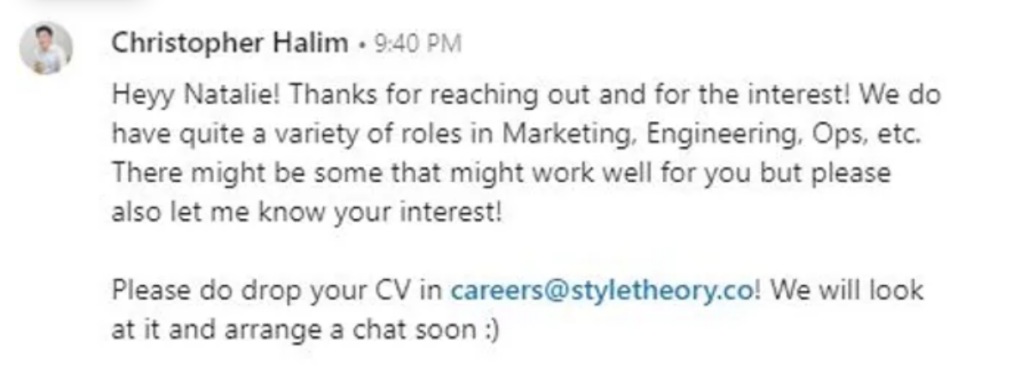
A few interviews later, I was offered a FT position as a Strategy & Business Development Associate. There was no one else in this role and I had to take a 60-70% pay cut. It was definitely nerve-wrecking jumping into a startup. I still remember people asking me if I was crazy to give up the salary, stability, the ability to travel and stay in 5 stars hotel and expense expensive meals away, all to join an early-stage start up. After all, isn’t it a well known fact that most startups fail?
My learning: There is no right or wrong in the career decisions you make. You never know how life will play out, you just need to take smart, informed risks. People tend to put the familiar, structured path on a pedestal because it’s safe. But is ‘safe’ what you want for your life? That is something you need to decide on your own. Some questions to ask yourself if you are thinking of a career switch: What are your priorities, what is your risk profile, what are you optimizing for in this phase of your career and why. Anyone can give their advice but you need to cut through the noise by being very intentional of what YOU want and need because ultimately it’s YOUR life.
My job criteria are as follows:
- People – I strongly believe that the environment that you are in can help or hinder you. We will most probably spend more time with our colleagues than our loved ones so it’s important to be working with people that energizes you.
- Product – I am a person who takes pride in my work so I need to be proud of what I am helping to build. I am also a passionate person so I need to be able to stand by my company’s products or services.
- Potential Learning / Progression – I am a huge advocate of constantly growing and becoming a better version of myself. I look at what I can potentially learn on the job and if there are many transferable skill sets I can pick up which can help me in my future roles.
On my first day, I remember my manager Chris asking me if I could be a Product Manager instead due to business needs. There would just be me and Dennis (one of ST’s first engineers). Joining a startup can be unpredictable and I had to be flexible and adapt to sudden changes in my job scope. I decided to take the challenge head on and be the best PM I can be. First step, of course, was to google what a PM is/does (that was how clueless I was). To further prepare myself, I watched Youtube videos, signed up for PM events and looked for PMs to invite out for coffee chats on Linkedin.
My learning: Don’t wait for the company to spoon feed you. We are not in school anymore where everything is nicely structured. This is especially so in the startup world where the priority of the company is to survive. If you are given something you are unfamiliar with, relish the chance to learn more. Be proactive about your own learning and it will serve you well.
The best of my PM learnings came about on-the-job of course, when I had to lead my first sprint with 0 tech knowledge and 0 PM experience. I flew over to Jakarta where our tech hub was to meet my tech stakeholders. I remember being very nervous because I had no guidance and it didn’t help that I didn’t speak Bahasa Indonesia too. However, I was very fortunate to meet with a very helpful bunch of engineers – Hengky (who was our Head of Engineering and he looked so stern in my first meeting with him), Dennis, Hendry, AW who helped me along the way.
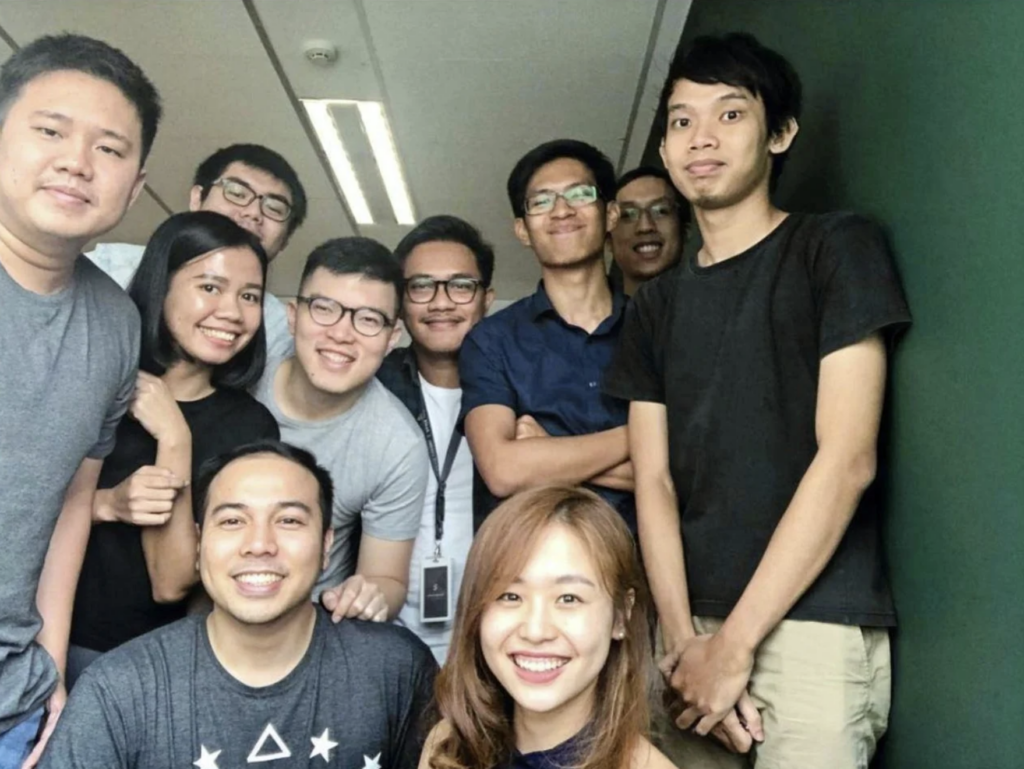
After being a PM for a year, I went back into a business role and my learnings continued to multiply. The pros of being in a startup is that you have the opportunity to wear multiple hats. If you are someone who is still unsure of your career options, joining a startup is a good way to get your hands dirty and be exposed to multiple disciplines. In my generalist / strategy & BD role, I worked on multiple projects and got to interact with stakeholders from many teams such as Merchandising, Growth, Content, Ops, Finance etc.
My learning: I learnt how to have more empathy in a business setting and understand the various challenges of each team. It’s important to gain cross-functional knowledge because you learn to see from other people’s perspective. With this, you will grow to become a more all-rounded stakeholder which in turns helps you to get things done more effectively. One of our mistakes is constantly just believing in our own world view and mental models. The world is much bigger than you think.
Mid-point in my journey in 2018, I came to a point where I felt stuck – I felt like I was doing well in what I was given but I was not sure how to get to the next level. This was when my other co-founder Raena shared with me something that really resonated with me: Thinking vs Doing. She said that in junior roles, people are usually evaluated by their execution. In more senior roles, people are evaluated by how they think – which basically means how they strategize and how they make decisions. In one of my performance reviews, Chris also shared that he would like his direct reports to be confident in their recommendations and not just present to him the research without having the conviction to recommend him an option.
With that feedback, I ramped up my learning by reading a lot more business books and going to various events and webinars to learn from more people. Putting in the time and effort to improve on these feedback helped me tremendously in becoming more of a value-add for ST which also helped me in my progression within the firm.
My learning: As mentioned above, L&D in start-ups are scarce simply because of the lack of resources. As such, we have to be more proactive and seek out more opportunities to learn by ourselves. This also pushes us to be more creative and resourceful. After all, no one would care more about our career than ourselves.
Mid-point in my journey in 2018, I came to a point where I felt stuck – I felt like I was doing well in what I was given but I was not sure how to get to the next level. This was when my other co-founder Raena shared with me something that really resonated with me: Thinking vs Doing. She said that in junior roles, people are usually evaluated by their execution. In more senior roles, people are evaluated by how they think – which basically means how they strategize and how they make decisions. In one of my performance reviews, Chris also shared that he would like his direct reports to be confident in their recommendations and not just present to him the research without having the conviction to recommend him an option.
With that feedback, I ramped up my learning by reading a lot more business books and going to various events and webinars to learn from more people. Putting in the time and effort to improve on these feedback helped me tremendously in becoming more of a value-add for ST which also helped me in my progression within the firm.
My learning: As mentioned above, L&D in start-ups are scarce simply because of the lack of resources. As such, we have to be more proactive and seek out more opportunities to learn by ourselves. This also pushes us to be more creative and resourceful. After all, no one would care more about our career than ourselves.
Last year, I took on an additional role of being a people manager. This new responsibility meant that I had to look after another’s work by spending extra time teaching them and ensuring that their outputs are also up to par. I definitely struggled at first as I was so used to just taking care of my own work and excelling in it. I also wanted to ensure I take care of their personal and career development needs as well and be able to bring the best out of everyone. Having had both good and bad managers in my career, I understood the importance of a good manager because it can really change the way you view your work and even yourself.
To improve as a manager, I observed the leaders around me and reflected on managers I’ve crossed paths with to decide for myself what kind of manager I wanted to be. I also read management books such as The Making of a Manager by Julie Zhuo, Radical Candour by Kim Scott and others to figure out how to lead and manage more effectively.
My learning: Through reading, reflecting and actually managing people, I was able to better understand the constraints of being a manager. In turn, this also enabled me to learn how to be a better direct report. As a junior, it will be of great help to your manager if you not only flag out issues but also provide solutions to them, so your manager has more mind space to take care of the higher level, strategic matters for long-term planning. I’ve learnt the importance of over-communicating, planning a few steps ahead and covering all possible bases – this allows your manager to build trust in you and give you more freedom. I’ve learnt to anticipate and be more proactive rather than be reactive. It’s important to understand not only your KPIs but your manager’s KPIs so you can help out more when you can.
One of the hardest things to leave behind is definitely my team. I have tried to be the best manager I can be. I will really miss them but I am honestly so proud of how much they have grown and what we have achieved together. I strongly believe that they will be able to help bring ST to greater heights!
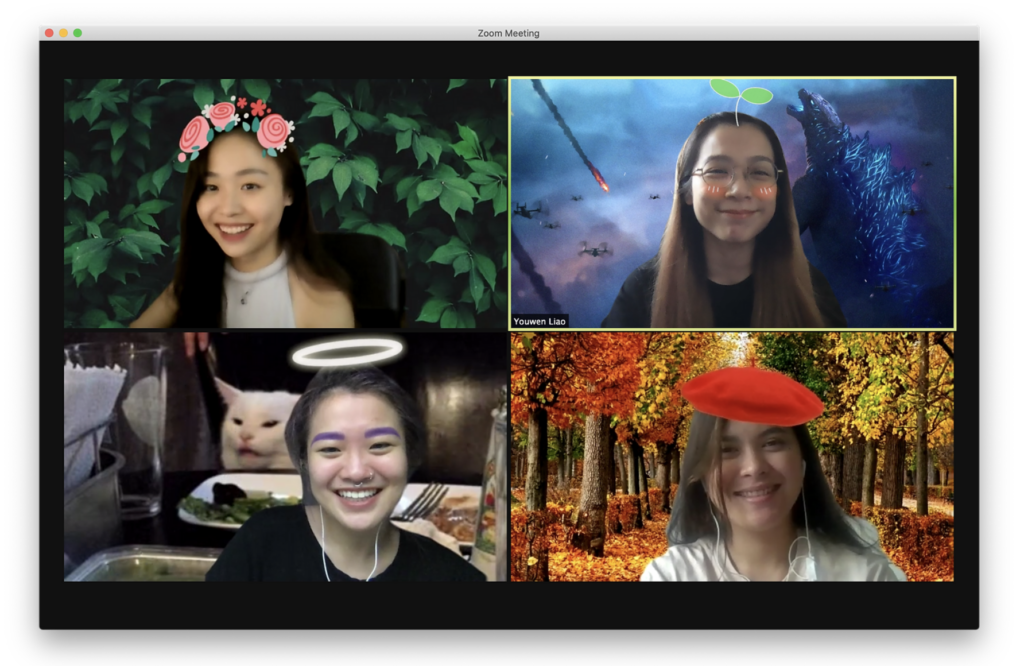
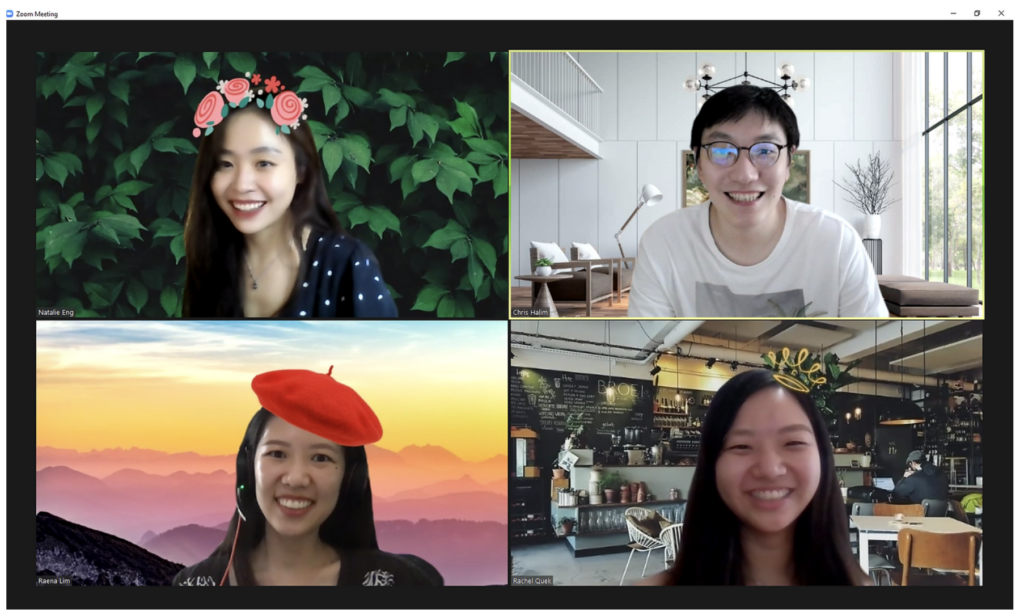
I have so many stories and learnings to share. Some of which I have put it in a beta version of my course here.
All in all, looking back on my journey, I dare say that joining ST, albeit risky, is one of the best career decisions I have made so far. I grew so much as a person and it would definitely be a chapter of my life that I would look back fondly on. Thank you to everyone who has journeyed with me in this adventure 🙂 I hope we can keep in touch!
I will be starting on my next play next Monday. I am sure it will also be a whirlwind of an adventure, building upon the learnings that I have gained so far! Let’s go 🙂
